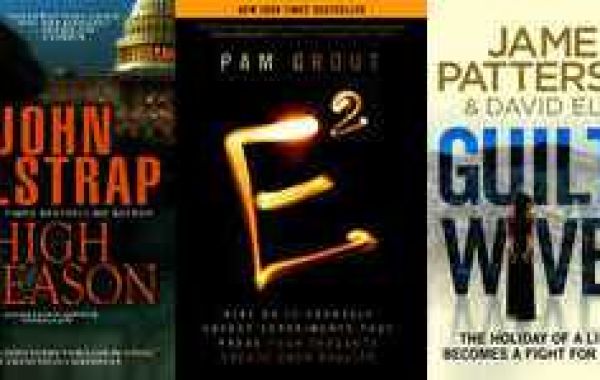Egyptian Arabic, known locally as "Masri" (مصري), is not just a language—it's a gateway into a rich culture, a fun way to engage with one of the most historic civilizations in the world, and a means of connecting with millions of people across the globe. Whether you want to converse with locals in Egypt, enjoy Egyptian films and music, or simply add some flair to your Arabic skills, learning to "talk like an Egyptian" is a rewarding and exciting challenge.
In this article, we’ll explore how to speak like an Egyptian, from mastering common expressions to understanding cultural nuances and pronunciation.
1. Start with the Basics: Key Egyptian Arabic Phrases
To speak like an Egyptian, you need to familiarize yourself with common phrases used in daily conversations. Here are some essential expressions to get you started:
- Hello: أهلاً (Ahlan)
- This is the most common greeting and can be used in any context. It’s casual but polite.
- How are you?: إزيك؟ (Ezayyak for males, Ezayyek for females)
- This is the informal way of asking “How are you?” and is used daily between friends and even strangers.
- I’m fine: كويس (Kwayyes for males, Kwayyessa for females)
- Egyptians often say "kwayyes" to indicate they are doing well.
- Thank you: شكراً (Shukran)
- This is a simple but polite way to say thanks.
- Please: من فضلك (Min fadlak for males, Min fadlik for females)
- Egyptians use this phrase when making a request.
These simple phrases will help you start conversations and engage in everyday interactions.
2. Add Some Egyptian Flair: Expressions Unique to Egyptians
Egyptians are known for their rich and humorous expressions, often colorful and very different from other Arabic dialects. Here are some quintessential Egyptian phrases:
- "Yalla!" (يلا) – This is the Egyptian version of “Let’s go!” or “Hurry up!” It's widely used and can be heard in any situation, from rushing someone to leaving the house to starting a conversation.
- "Ahlan wa sahlan" (أهلاً وسهلاً) – A very warm way to say “Welcome” and make people feel at home. It’s a classic expression of hospitality.
- "Mabrouk!" (مبروك) – This means “Congratulations!” and is used in both formal and informal contexts, whether celebrating a wedding or a small achievement.
- "Maalesh" (معلش) – A comforting phrase that means “It’s okay” or “Never mind.” It’s a way of reassuring someone that everything is fine.
- "Gamal" (جمال) – Means beauty, but it’s also a popular expression to praise someone or something, e.g., “You look amazing!”
These phrases and expressions are part of the Egyptian charm and will instantly make you sound more authentic when speaking with locals.
3. Pronunciation Tips to Sound More Egyptian
To talk like an Egyptian, it’s important to understand how the dialect sounds. Egyptian Arabic is known for its distinct pronunciation, which differs greatly from Modern Standard Arabic (MSA) and other dialects. Here are some tips to help you sound more like a native:
- "ج" (Jeem): In Egyptian Arabic, the letter ج is pronounced like a hard “g,” rather than the soft “j” sound in MSA. For example, "جميل" (beautiful) is pronounced “gamil” in Egyptian Arabic.
- "ق" (Qaf): The letter ق is often pronounced as a glottal stop, like an unvoiced sound similar to the pause in “uh-oh.” For example, "قلب" (heart) is pronounced “alb.”
- Vowel Lengthening: Egyptians tend to lengthen vowels in words for emphasis. For instance, "كده" (kida, meaning “this way”) can be pronounced as “kiiida” for extra emphasis.
- Softening of the “Th” sound: The “th” sound (as in “that” or “think”) is often softened in Egyptian Arabic, pronounced more like “z” or “s.” For example, "ثلاثة" (three) becomes “tlaata” instead of “thalaatha.”
4. Embrace the Egyptian Sense of Humor
Egyptians are known for their humor and often use jokes and playful expressions in their everyday speech. Incorporating humor into your speech will make you sound more natural and connected to Egyptian culture. Some funny and playful expressions include:
- "Ya 3am" (يا عم) – A very common, casual term used to refer to someone like “dude” or “man.” It's often used between friends.
- "Akeed" (أكيد) – Means “Of course,” and it’s used to confirm something with enthusiasm.
- "Haram!" (حرام) – Literally meaning “it’s a sin,” this word is used to express sympathy or disbelief in a situation, like “Oh no!”
5. Speak with Confidence and Warmth
One of the most essential elements of sounding Egyptian is adopting the confident and friendly tone typical of Egyptians. Egyptians are warm, expressive, and outgoing in their interactions. They use gestures and facial expressions to emphasize what they are saying. To fit in, try:
- Using hand gestures: Egyptian gestures are part of their expressive speech. Use your hands to underline your points and emphasize emotions.
- Speaking with enthusiasm: Egyptians often speak in an animated manner, even in casual situations. Don’t be afraid to show excitement!
6. Practice, Practice, Practice
The best way to learn to talk like an Egyptian is by practicing the language regularly. Surround yourself with Egyptian Arabic through media—watch Egyptian movies and TV shows, listen to Egyptian music, and, if possible, engage with native speakers. Whether through language exchange apps, online tutoring, or visiting Egypt, the more you immerse yourself in the language, the more authentic your speech will become.
Conclusion
Talking like an Egyptian is more than just mastering a set of phrases—it’s about embracing the culture, humor, and warmth that define this unique dialect. By incorporating the right vocabulary, pronunciation, and expressions into your conversations, you'll be well on your way to sounding like a true Egyptian. So, start practicing those famous Egyptian phrases and let the fun begin—yalla, let's go!







